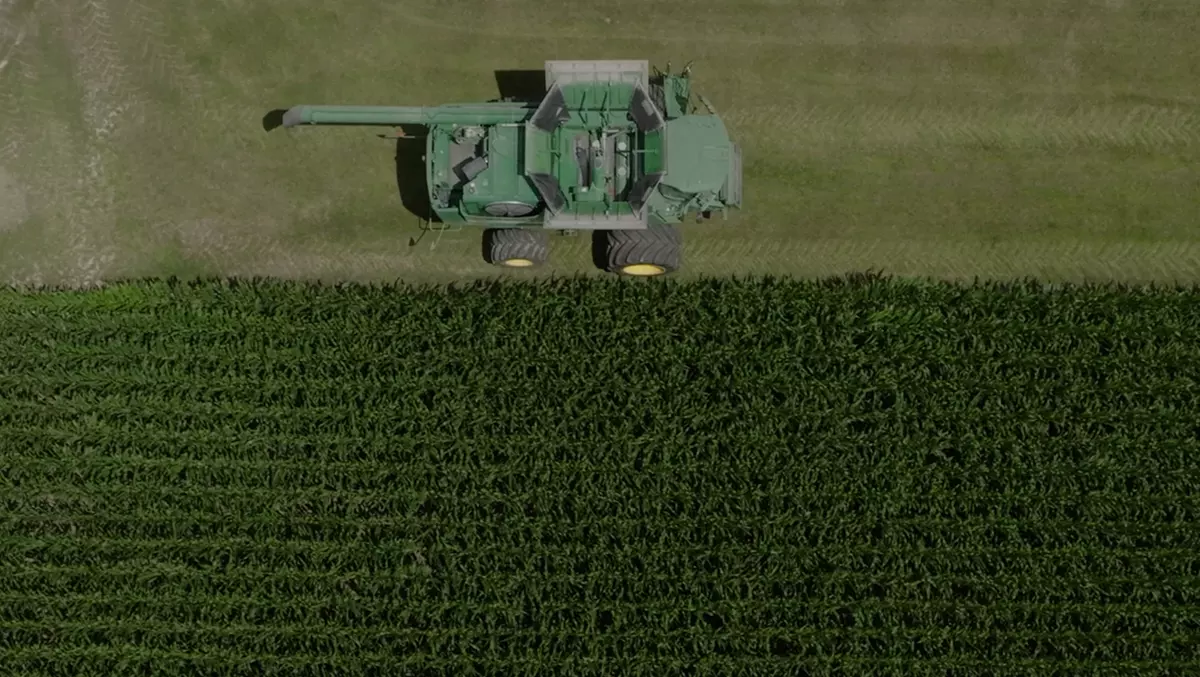From Farms to Fiber: The Promise of Regenerative Agriculture to the Future of Fashion

Balancing cleaner, safer and more resource-efficient production methods with innovation to drive business growth is difficult in any industry. Elisa Tonda, Head of the Consumption and Production Unit at the UN Environment Programme (UNEP), explains why this is especially challenging for the fashion industry.
“The global production of clothing and footwear generates 8% of the world’s greenhouse gas emissions and, with manufacturing concentrated in Asia, the industry is mainly reliant on hard coal and natural gas to generate electricity and heat. If we carry on with a business-as-usual approach, the greenhouse gas emissions from the industry are expected to rise by almost 50% by 2030.*”
However, recent data from the Rodale Institute, collected from farming systems and pasture trials around the globe, shows that if farmers can improve soil health, through regenerative agricultural practices, then more than 100% of the global annual CO2 emissions could be sequestered into the soil. That’s roughly 52 gigatonnes of carbon dioxide every year!
"If we carry on with a business-as-usual approach, the greenhouse gas emissions from the industry are expected to rise by almost 50% by 2030."
The core focus of regenerative agriculture is about working with farmers to promote healthy soil practices and biodiversity — including low or no tilling, planting cover crops, reducing fertilizer use, and improving nutrient management. All of these practices are designed to increase soil organic matter and reduce GHG emissions by sequestering more atmospheric carbon into the soil. This in turn helps promote biodiversity - as well as improving water quality and reducing soil erosion.
In a groundbreaking collaboration, The LYCRA Company has joined forces with Qore®, a joint venture between Cargill, an expert in agricultural fermentation technologies, and HELM, a German chemical company. Next year, Qore® will be producing QIRA® - a renewable ingredient derived from Iowa field corn. QIRA® will be the key component in renewable LYCRA® fiber, bringing comfort, style, and fit to clothing worn around the world, now with a reduced environmental impact.
When Cargill receives the harvested corn from the farms, part of the process involves separation of the kernel into discrete parts, ensuring each gets used where it can deliver the most value. For example, while the protein typically gets used to create animal feed, the starch portion can be found in a myriad of applications - including ethanol for gasoline, food uses such as corn syrup, and now, fibers for clothing. Steve Stewart, Chief Brand & Innovation Officer of The LYCRA Company, says “By adopting QIRA®, we’re making a significant commitment to reduce our reliance on fossil-based resources and to enable our customers to reduce their carbon footprints.”
Why Iowa corn specifically?
Steve Kuiper, whose family has been farming in Iowa for more than a century, speaks to its benefits. “Iowa has some of the most productive farming ground in the nation, excellent infrastructure for transporting goods, and the support of organizations like Iowa Corn Growers Association and Iowa Corn Promotion.”
Iowa is also home to Cargill’s biotechnology campus and corn refining operation in Eddyville, Iowa. The Qore® facility for manufacturing QIRA® is also located here, tapping into Cargill’s expertise, R&D and network of farmers. The Qore® facility will run mainly on wind power, reducing energy GHG emissions, and will source field corn from within a 100-mile radius - reducing transportation emissions and providing local farmers, like Kuiper, with a reliable market for their crops.
Qore® is committed to farmers who use regenerative agriculture practices to raise their field corn. “With QIRA®, we will be pulling vast quantities of CO2 out of the atmosphere by growing annually renewable corn crops and capturing it in the product,” says Jon Veldhouse, CEO of Qore®. Thanks to the involvement and support of local intergenerational farming families, renewable materials — like QIRA® made from field corn — are helping to accelerate regenerative agriculture practices and support local farming economies.”
Amanda and Jackson Drost, a wife and husband team whose Iowa farming roots go back many generations, will be one of a number of Iowa farms that will likely provide corn to make bio-derived QIRA®, which will eventually end up in LYCRA® fiber and ultimately clothing. Jackson is passionate about their role in helping to preserve the natural ecosystem and make new fibers: “Just like our own bodies, if you treat the soil with respect, and give it the micronutrients it needs, it will reward us."
*Source: “UN launches drive to highlight environmental cost of staying fashionable.”
LYCRA® is a trademark of The LYCRA Company.
QIRA® is a trademark of Qore®.
Contact
-
The LYCRA Company
Jean Hegedus
Sustainability Director - USA